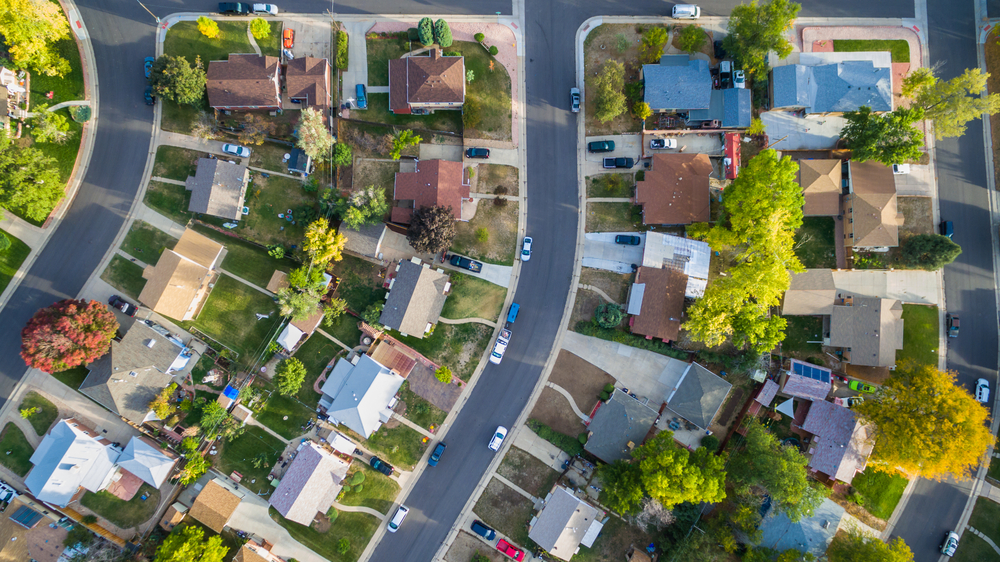A neighborhood website is one of the first acquisitions you should invest in as a newly minted agent.
Of course, an IDX website is necessary to your business. You need one to showcase your listings.
But what if you don’t have any listings yet?
What if you’re still building an inventory, and lacking in testimonials?
Guess what? Your website can be more than a business card or a digital flyer. Prospects want more than display ads, your bio, and a list of inventory.
A neighborhood website that appeals to potential homebuyers, and supports community growth, is the key to persuading online prospects of 3 things:
- expertise
- authority
- credibility (trustworthiness)
In this article, we’ll explore the drawbacks of an IDX website, and why they often fall short of expectations as lead generators. We’ll also examine the key principles that will make your neighborhood website effective at generating referral business.
The Problem: Why your IDX website isn’t generating leads
Agents in their first year are often discouraged by the lackluster results generated by their new website. They assume that leads and inquiries will start rolling in immediately, once their IDX website is published.
If only it were that easy!
Even experienced agents who generate high volume traffic struggle to keep website visitors engaged. Despite heavy investment in CPC campaigns and Facebook ads, your conversion plummets while your bounce rate climbs.
Overtime, many agents wind up neglecting their website in favor of prospecting activities and advertising.
Big mistake!
By focusing on high volume traffic and listings, you fail to leverage the knowledge, skills and relationships that make you valuable to your prospects.
A Website Is Not A Business Solution
A website is simply a medium for publishing and sharing information. It won’t build your sphere of influence, improve your conversion rate, or make you a better agent.
That’s all on you.
Technology is just a tool, not a solution. Only you can cultivate relationships that generate referral business.
Enticing buyers and sellers with vibrant images, bright signage and conspicuous displays of discounted stock, may work for a brick-and-mortar business, but online users expect much more from a website than advertising.
Think of your website as more than a digital storefront.
Why A Neighborhood Website Is So Effective
90% of prospective buyers and sellers turn to the internet as the first step in their search for a new home. Before contacting an agent or broker, they research the housing market, neighborhoods and mortgaging options online.
Top Online Search Resources Used By Buyers
Potential buyers also look for:
- Information about the community
- Local businesses, schools, services, and amenities
- Local attractions and events
- Crime rate, demographics
- Proximity to work, major urban centers
This vetting process can last as long as 4 months before they’re ready to meet with you.
So ask yourself: what does your IDX website offer prospects who are researching the market before they are ready to buy?
Your current website might appeal to buyers who are prequalified and eager to purchase a home, but those prospects are more likely to connect with an agent referred to them by a peer. They are far less likely to contact an agent online if they can find one in their network.
Creating a Neighborhood Website Hub
If you think of your website as a neighborhood hub, rather than as a business card, you can start to create content that appeals to buyers and sellers long before they’re aware of a need.
In addition to your listings, your website should be consistently updated with neighborhood content that’s relevant to prospects researching and preparing to buy in the near future.
Change the content of your website to reflect local issues and topics that are specific to your geographic farm. You’ll attract existing homeowners too, and prospective buyers seeking information about the local community.
Your neighborhood website will generate higher quality referrals if you focus on 3 key activities:
- Expand your sphere of influence with local business owners
- Provide local homeowners and businesses with helpful information and resources
- Create a plan for cultivating your leads and referrals over time
Content Ideas for Your Neighborhood Website
- Interviews with local business owners
- Interview with local celebrities/influencers
- Interview with local experts/industry experts
- Video tutorials for new home buyers
- List articles of local businesses useful to homeowners
- Event calendar of local community events
- Reviews of local businesses
- Community alerts and updates (school closings, road closings, construction, etc)
Your neighborhood website will help you generate valuable referral business from local homeowners and businesses if you keep in mind the 6 key principles of persuasion.
The Principles of Influence
Robert Cialdini’s national best seller, Influence: The Psychology of Persuasion, is a must read for entrepreneurs and agents alike who want to improve at lead conversion and cultivation.
Cialdini outlines 6 universal principles that govern the dynamics of relationships between consumers and brands.
If you want to persuade more online visitors to choose you as their realtor, focus on creating content that fulfills at least 4 of Cialdini’s principles of influence:
4 Key Principles of Influence For Creating A Neighborhood Website
#1) Reciprocity
Relationships are built on the concept of reciprocity.
When you help someone, they naturally feel obligated to return the favor. By helping others achieve their goals, we earn the support of others. If I help you save money on your home insurance, you’ll help me achieve my monthly revenue target.
Business is built on this fundamental principle.
As a real estate agent, your goal should be to serve your community by leveraging your knowledge, expertise and relationships.
Use your neighborhood website to connect business owners with the resources, knowledge, and relationships they need to succeed. In return, they will reciprocate by providing you with valuable, qualified referrals from their own sphere of influence.
Even if you have 0 listings or testimonials, you can write articles on the businesses in your geographic farm, and post them on your website. You can videotape your interviews and share them online as well.
The additional exposure you provide local businesses in your farm will generate targeted interest from local residents. In exchange, you’ll find business owners more willing to reciprocate with qualified referrals.
#2) Commitment
We earn trust when we demonstrate our capacity for commitment. Our consistency is an indicator of our trustworthiness. After all, would you trust someone who’s inconsistent to facilitate a transaction worth hundreds of thousands of dollars?
A neighborhood website is your opportunity to demonstrate your commitment to the community, and not just a commission check. By consistently producing content for a local audience (i.e. list articles, interviews, business listings, community event calendar), you demonstrate knowledge of the local market as well as your dedication to local residents and business owners.
When they discover your website in a Google search, local residents and business owners will come to appreciate your focus on local content.
Over time, your consistency will establish you as a local resource that businesses can turn to when they need targeted exposure.
Local residents will also begin to recognize you as a realtor that is active, well connected, and trusted by others.
#3) Authority
Search engines reward websites that carry authority with higher visibility in search results. Landing on the first page of a search will drastically improve your traffic, but competition for top ranking is always fierce.
Competing agents in your target farm leverage their brokerage and its reputation to gain visibility in search results. Everyone knows RE/Max, Century21, and the big brands, but even agents working for the same brokerage must compete for online visibility.
You can establish yourself as a neighborhood authority with search engines by focusing on a specific market and having more content to offer than your competitors.
For example, if a fellow agent has only ten pages of content on their website, and you have over 50 pages of more detailed information about the neighborhood, Google, and other search engines will rank your content higher. Google reasons that users are more likely to find what they need from you.
Think of it this way: a variety store with only 2 shelves will have much less to offer consumers than a variety store with 10 shelves of product.
Your neighborhood website, with its video content, interviews, articles, listings and a local events calendar, can offer more value than a website focused exclusively on listings.
#4) Social Proof
Testimonials are valuable social proof that you are trustworthy, reliable and capable, but there are other forms of social proof you can build.
Likes, shares, and comments generated by your neighborhood content, are all evidence to search engines and prospects that you are engaged and valued by the local audience.
As your neighborhood content is shared by business owners, it will generate likes, comments and shares. Posting your list articles to Facebook will generate more online engagement, another strong indicator that people find your content worth sharing.
Every piece of content you produce for your neighborhood website should be shareable. Local, shareable content can help you expand your sphere of influence, and funnel leads into your subscriber list or CRM.
The leads generated from your social sharing activities need to be carefully cultivated and nurtured over time. They won’t yield an immediate return, but will certainly pay off by providing you with word of mouth business.
Summary
Generating word of mouth referral business is the key to building momentum and growing your sphere of influence.
Unfortunately, most agents leave their website to do all the heavy lifting and expect their listings and testimonials to attract prospects in high volume. They soon realize that converting visitors to your website into clients is more difficult than originally anticipated.
Remember: your website is only a tool, not a solution.
Turn your website into an online neighborhood hub that helps business owners and residents support one another, and they will reciprocate by providing you with referral business.
Go beyond listings and home valuation reports. Provide local residents and businesses with free, helpful neighborhood information that is unique in order to demonstrate your intimate knowledge of the community.
Commit to publishing articles, interviews, event listings, and other forms of content consistently and your influence will grow both online and offline.
Don’t just solicit businesses. Become a local leader by creating a neighborhood website that serves your target audience. Serve your geographic farm through your knowledge and relationships. In return, they’ll reciprocate with qualified referrals and leads.

